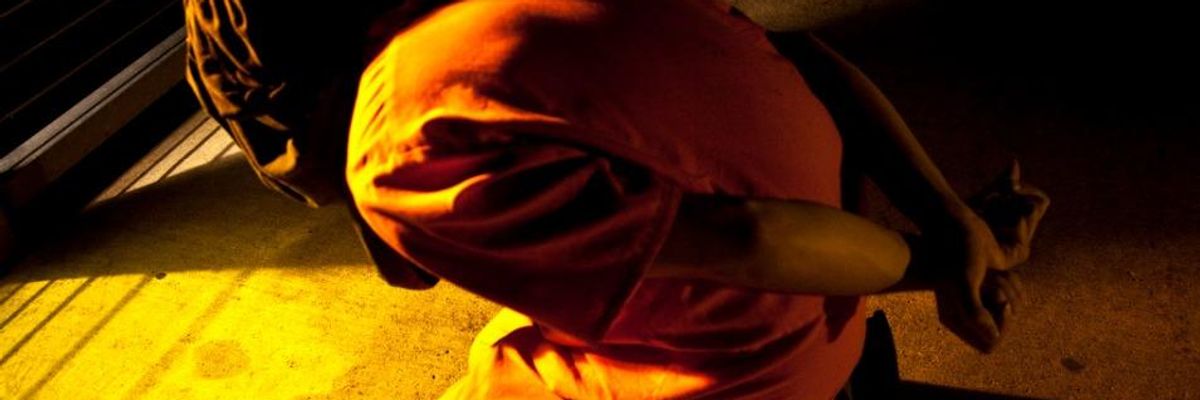A years-long legal battle to compel the Department of Defense to release over 2,000 photos depicting abuse and torture of detainees in U.S. custody may have reached a critical moment on Wednesday.
Some of the photos have been described as being possibly more disturbing than those from Abu Ghraib. The Telegraph previously reported that they "were largely taken by U.S. troops themselves as they posed with prisoners or corpses and were gathered during the course of 203 military investigations in Iraq and Afghanistan."
At the Manhattan hearing, U.S. District Judge Alvin Hellerstein issued the DoD a one-week deadline to submit its reasons for suppressing each of the photos, as the court had ordered last year, according to reporting by Newsweek and the Guardian.
Hellerstein said the case had reached "a line in the sand," and said, "I could give you more time to satisfy my ruling...but I am not changing my view," Newsweek reports.
The Guardian summarizes the ACLU's decade of efforts at transparency:
Both the district court in 2005 and the second circuit court of appeals in 2008 held that the images should be released. But legislation was subsequently introduced through the senate to exempt the photographs from Freedom of Information laws, as they would jeopardize national security.
In 2012, then Defense secretary Leon Panetta reclassified all the photographs, having been presented with a small selection of the collection. Panetta's move was subsequently challenged, with Hellerstein ruling last year for the individual exemptions to be made.
While the government has pushed against the release of the photos, saying it would threaten national security, the ACLU has argued that the transparency and full reckoning of post-9/11 transgressions are necessary for a democracy.
Following a legal bid by the Bush administration in 2008 to block release of the photos, Amrit Singh, staff attorney with the ACLU, stated: "These photographs demonstrate that the abuse of prisoners held in U.S. custody abroad was not aberrational and not confined to Abu Ghraib, but the result of policies adopted by the highest-ranking officials in the administration.
And Steven R. Shapiro, Legal Director of the ACLU, stated in 2009: "No democracy has ever been made stronger by suppressing evidence of its own misconduct."

